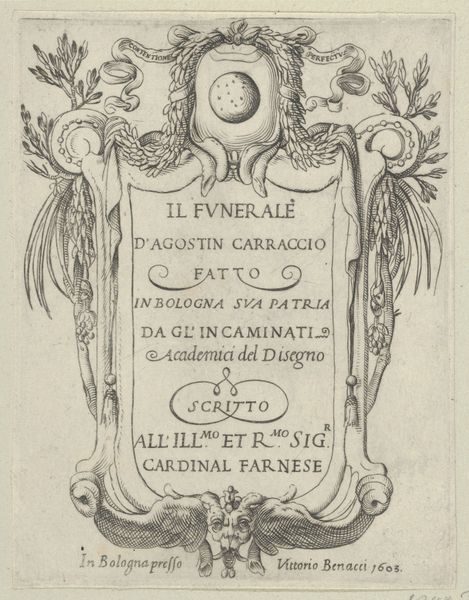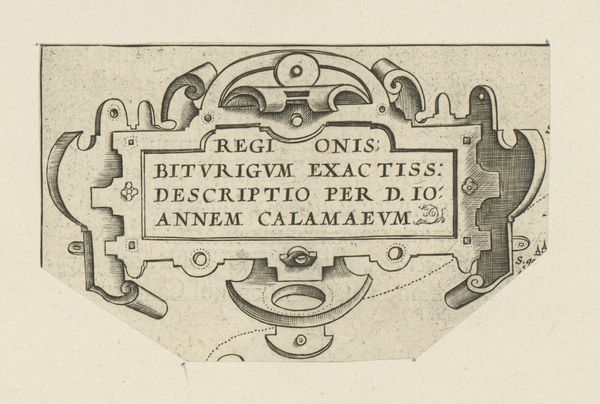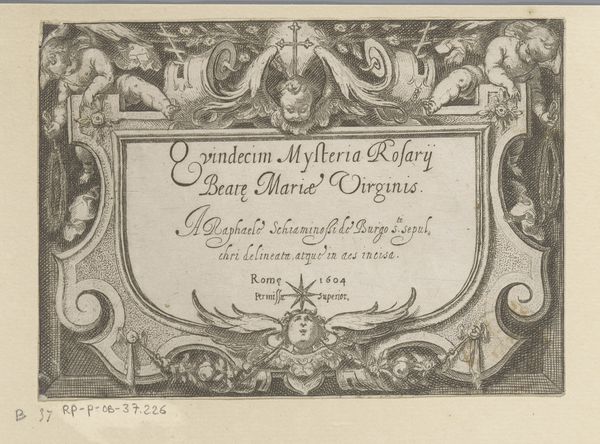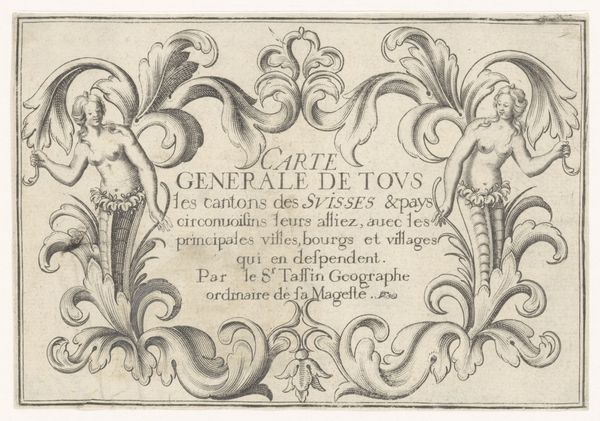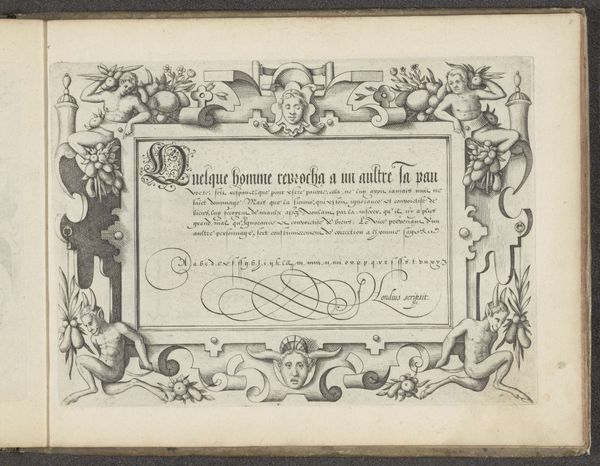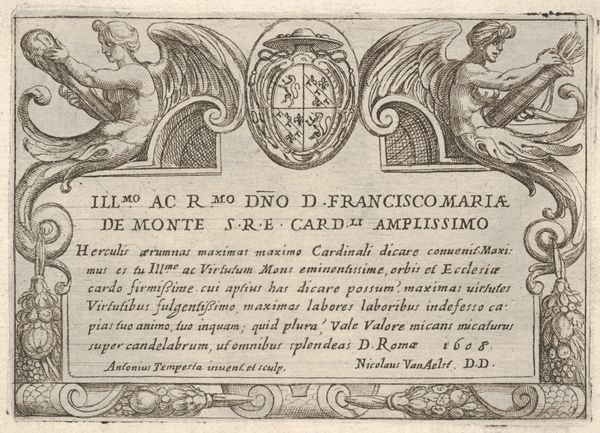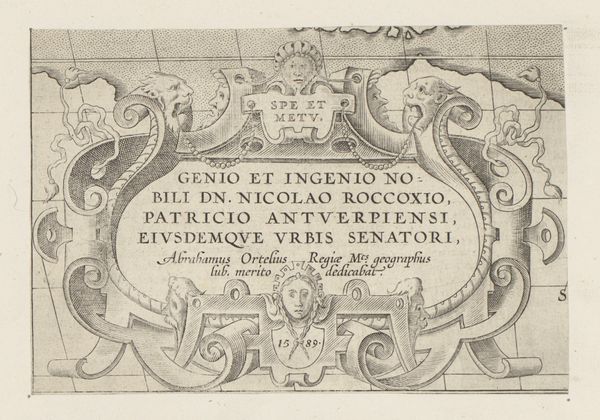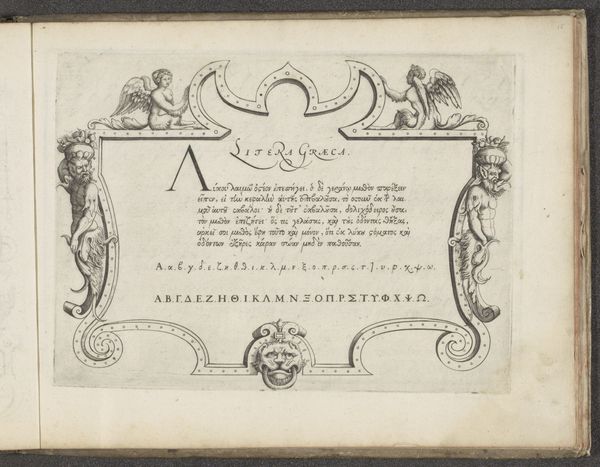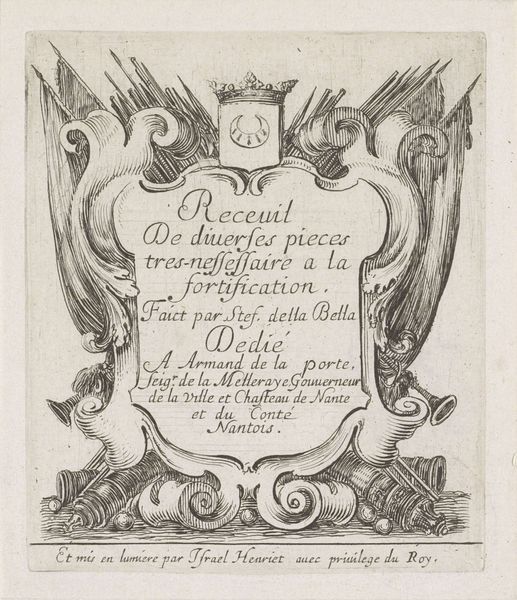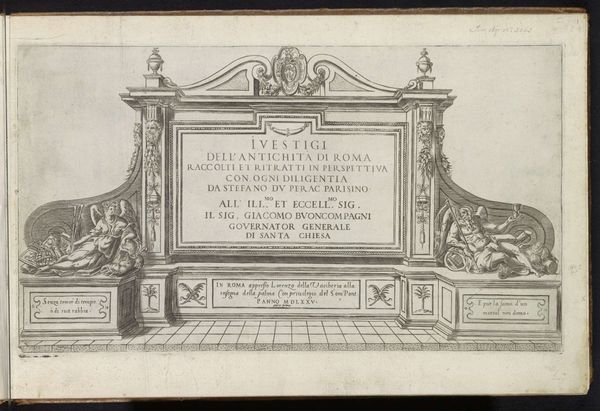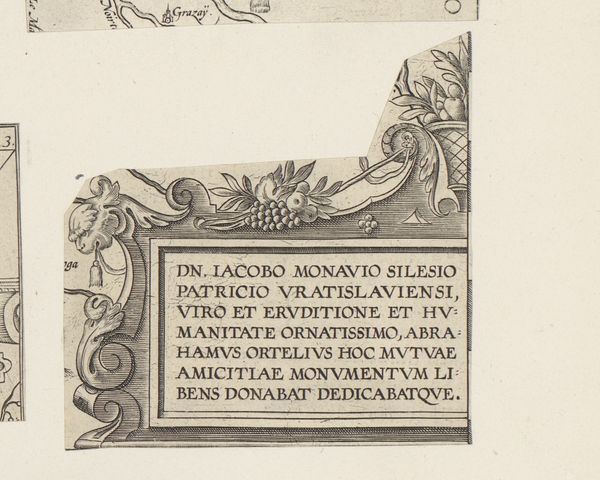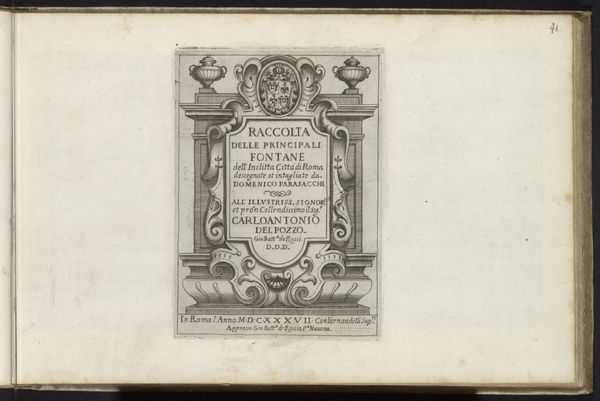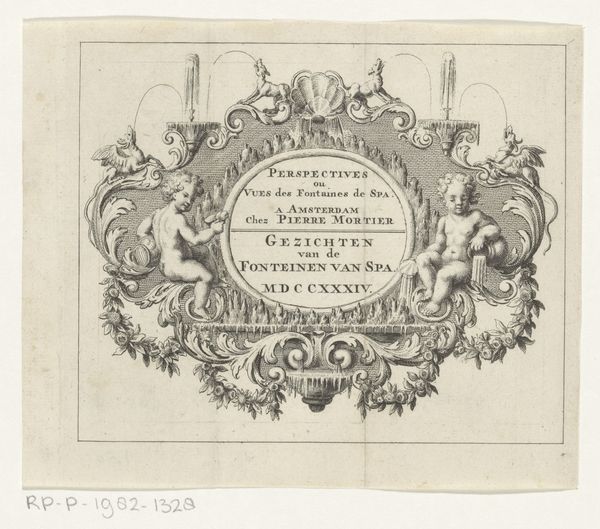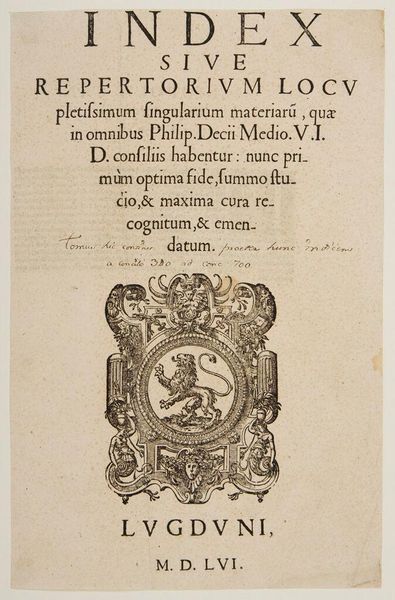
Titelprent met cartouche met twee naakte vrouwen, een cherubijn en tekst 1565 - 1630
0:00
0:00
antoniotempesta
Rijksmuseum
print, engraving
# print
#
mannerism
#
figuration
#
italian-renaissance
#
nude
#
engraving
Dimensions: height 73 mm, width 117 mm
Copyright: Rijks Museum: Open Domain
This title print was made by Antonio Tempesta in Rome, using a process called engraving. Here, lines are incised into a metal plate – typically copper – with a tool called a burin. The plate is then inked, and the surface wiped clean, leaving ink only in the engraved lines. Finally, paper is pressed against the plate, transferring the image. Engraving was the primary means of image reproduction for centuries, valued for its precision and capacity to capture fine detail. You can see how Tempesta has used closely spaced lines to create areas of shadow and volume, giving the figures a sculptural quality. The muscular figures and elaborate cartouche reflect the influence of the Italian Renaissance. Prints like this were a crucial part of the early modern media landscape. They allowed images and ideas to circulate widely, contributing to the growth of a visual culture that extended far beyond the elite circles of patrons and artists. They remind us that art and design have always been intertwined with technologies of production and distribution, shaping our world in profound ways.
Comments
No comments
Be the first to comment and join the conversation on the ultimate creative platform.
